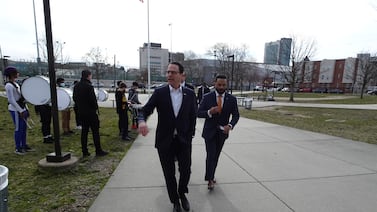After proposing that some children get 10 extra hours of preschool a week when Colorado’s universal preschool program launches next year, state officials backed off that plan this month.
The proposal would have allowed a large subset of children, including those from low-income families, or who have disabilities or are learning English, to get double the 10 hours a week guaranteed by law to all 4-year-olds — for a total of 20 hours a week.
But now those extra hours are in question after Lisa Roy, the executive director of the state’s early childhood department, removed the number from a new rule she authorized.
That decision represents a bit of a flip-flop by Roy’s department, which proposed the extra 10 hours in the first place. It also illustrates the challenge of launching a major new early childhood program when so many details are still in flux.
A committee charged with advising Roy on early childhood rules approved the 10-extra-hours provision as part of a broader rule late last month. Roy, who has the final say on rules, took out the 10-hour number early this month.
She explained in a public memo that she did so “to allow for further conversation and to consider the number of hours in coordination with the discussion related to rate-setting, which will happen later this fall.”
It’s possible, but not certain, the 10 additional hours will be reinstated at that time. The number of additional hours could also be decreased or increased.
Rate-setting refers to the process for deciding the amount of money the state will pay preschool providers for each universal preschool seat. State leaders say they want to ensure the rate reflects the true cost of providing high-quality programming and ensures preschool teachers make a living wage.
Both are lofty goals that some experts say, if realized, could mean a per-pupil rate at least double the nearly $4,500 per seat average the state paid last year to providers participating in Colorado’s smaller preschool program serving students with certain risk factors.
Colorado’s new universal preschool program, which will be tuition-free, could eventually serve about three-quarters of the state’s 4-year olds.
Ann Schimke is a senior reporter at Chalkbeat, covering early childhood issues and early literacy. Contact Ann at aschimke@chalkbeat.org.







